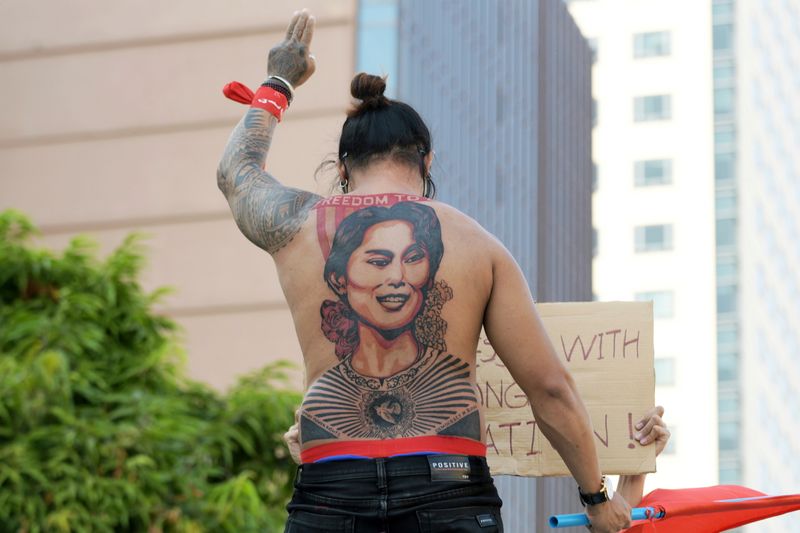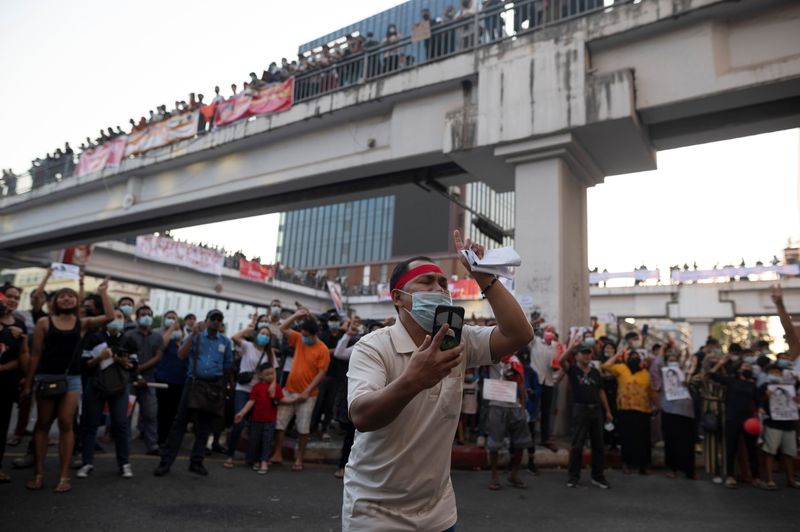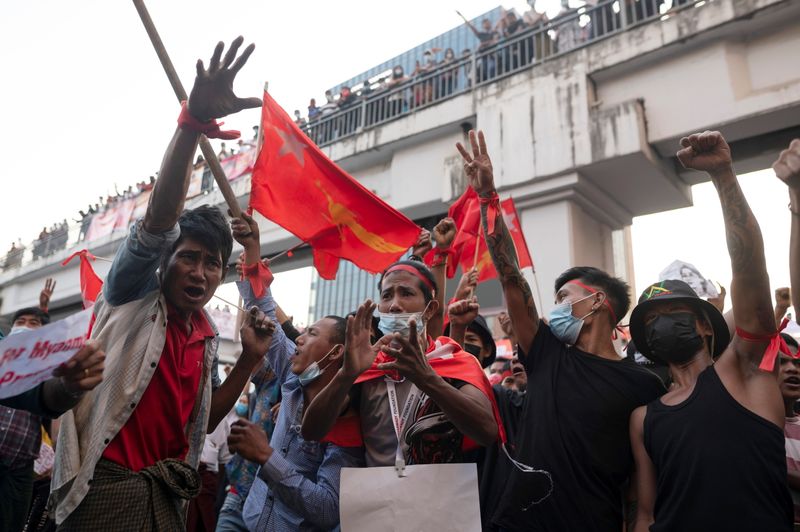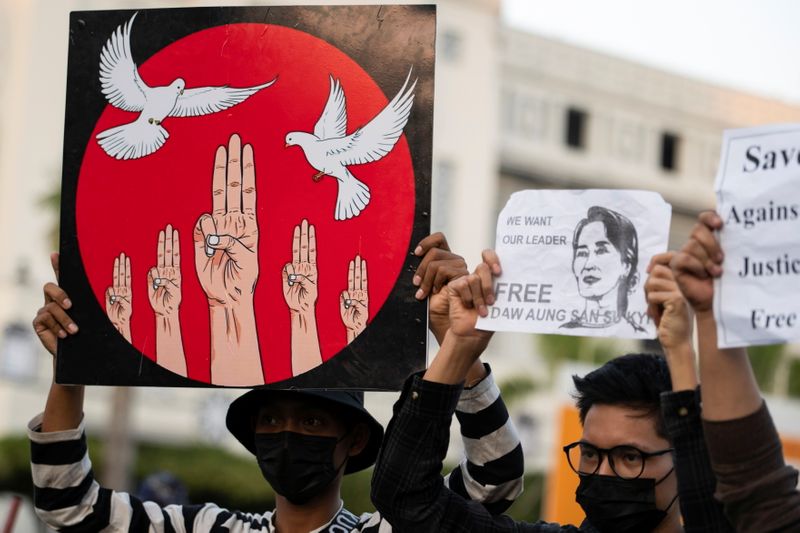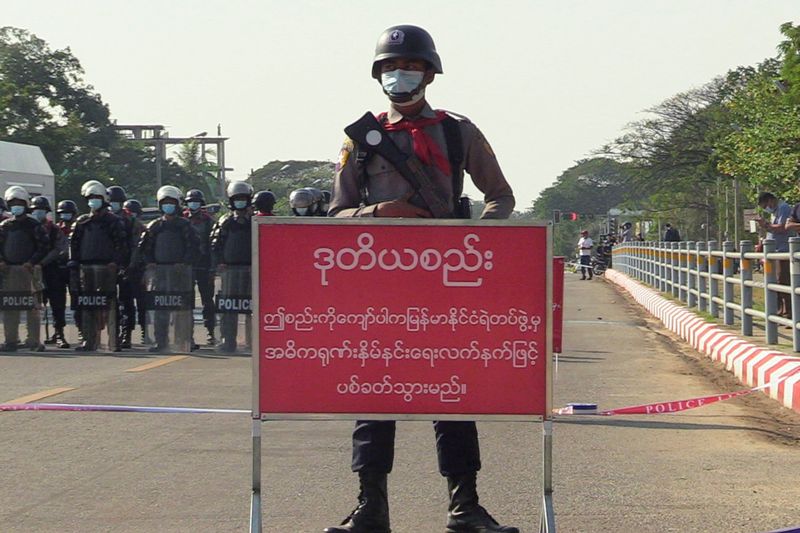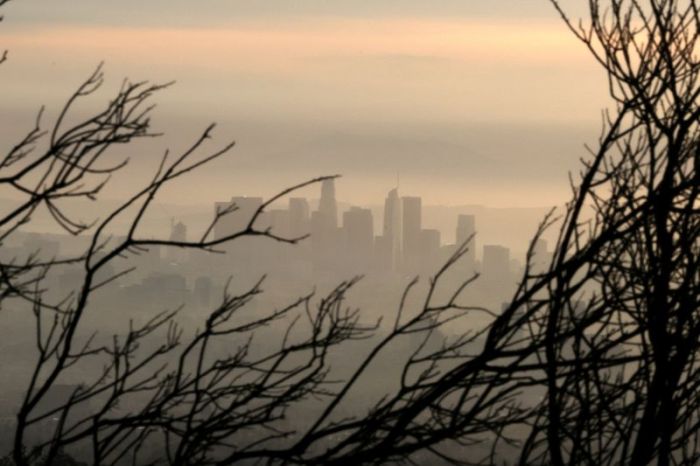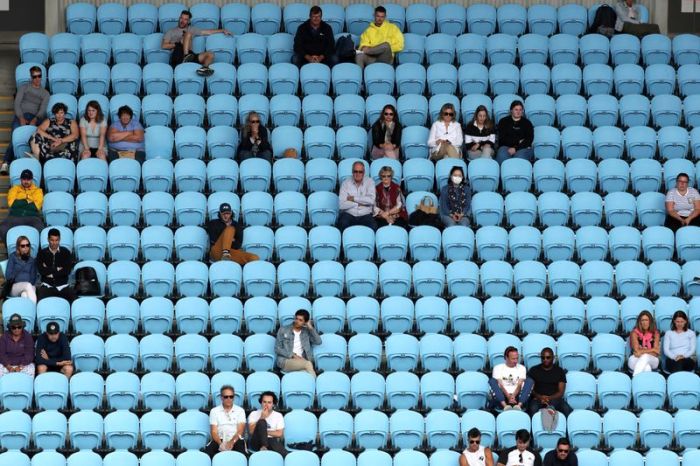(Reuters) – Myanmar’s military leader said on Monday his junta would hold a new election and hand power to the winner as tens of thousands of people took to the streets for a third day to protest against the coup that overthrew Aung San Suu Kyi’s civilian government.
Senior General Min Aung Hlaing was speaking in a televised address, his first to the country since last Monday’s military takeover. He did not say when the election would be held, but repeated claims that last November’s poll, won by Suu Kyi’s National League for Democracy (NLD), had been fraudulent.
In the capital Naypyitaw, crowds of protesters chanted anti-coup slogans and told police they should serve the people not the military, according to media and a live feed of events.
Police turned water cannon on protesters and warned that they might use live fire if the demonstrators did not disperse, but the protests ended without bloodshed.
The U.S. Embassy said it had received reports that a curfew had been imposed in Yangon and Mandalay, the second-biggest city, from 8 p.m. to 4 a.m. local time.
U.S. State Department spokesman Ned Price said on Monday that the United States supported the right of the people to assemble peacefully and that it was concerned about restrictions being imposed on public gatherings.
The generals had already tried to justify their takeover on the grounds of election fraud – rejected by the election committee – and had promised a new vote.
Min Aung Hlaing reiterated that position on Monday and said the junta would form a “true and disciplined democracy,” different to previous eras of military rule.
He accused the election committee of using the coronavirus pandemic as an excuse to prevent fair campaigning and said it must be reformed.
“We will have a multiparty election and we will hand the power to the one who wins in that election, according to the rules of democracy,” he said.
He gave no time frame but the junta has said a state of emergency will last one year.
CALL FOR STRIKE
Government workers, doctors and teachers are among those who have rallied to the call for civil disobedience and strikes.
“We request government staff from all departments not toattend work from Monday,” said activist Min Ko Naing, a veteranof the 1988 demonstrations that brought Suu Kyi to prominence.
Suu Kyi won the Nobel Peace Prize in 1991 for campaigningfor democracy and spent nearly 15 years under house arrest as she struggled to end almost half a century of army rule.
The 75-year-old has been kept incommunicado since Min Aung Hlaing seized power. She faces charges of illegally importing six walkie-talkies and is being held in police detention until Feb. 15.
Her lawyer said he has not been allowed to see her. The U.S. State Department said it had made both formal and informal efforts to reach her, but was denied.
The daughter of the former British colony’s independencehero Aung San, Suu Kyi remains hugely popular at home despitedamage to her international reputation over the plight of theMuslim Rohingya minority.
While Western governments have widely condemned the coup, there has been little in the way of concrete action to put pressure on the generals.
The U.N. Security Council has called for the release of SuuKyi and other detainees. The U.N. Human Rights Council will hold a special session on Friday to discuss the crisis at the behest of Britain and the European Union.
The administration of U.S. President Joe Biden has said it is considering targeted sanctions. It said on Monday that it was “moving quickly” to form its response.
In a letter on Monday, a senior NLD member asked U.N. Secretary-General Antonio Guterres to “use all available means…to ensure a swift reversal of the coup”.
A U.N. spokesman confirmed receipt of the letter. Guterres last week pledged to mobilize international pressure to make sure the coup failed.
CRISIS MOVES TO STREETS
Myanmar state media had earlier signalled possible action against protesters.
“We, the whole people who value justice, freedom, equality,peace and safety, not only refuse to accept the lawlesswrongdoers but also request that they be prevented and removedthrough cooperation,” the MRTV television station said in acomment that was later read out on a military-owned network.
Calls to join protests and to back a campaign of civildisobedience have grown louder and more organised.
“Our message to the public is that we aim to completelyabolish this military regime and we have to fight for ourdestiny,” Aye Misan, a nurse at a government hospital, said at a protest in Yangon.
Thousands also marched also in the southeastern city ofDawei and in the Kachin state capital in the far north, reflecting a rejection of military rule by diverse ethnic groups.
In Yangon, a group of saffron-robed monks marched in the vanguard of protests with workers and students, flying multicoloured Buddhist flags alongside red banners, the NLD’s colour.
The protests are the biggest since the “Saffron Revolution”led by monks in 2007, which led over subsequent years to themilitary’s gradual withdrawal from politics.
(Reporting by Reuters staff, Writing by Matthew Tostevin and Rosalba O’Brien, Editing by Angus MacSwan and Sonya Hepinstall)

